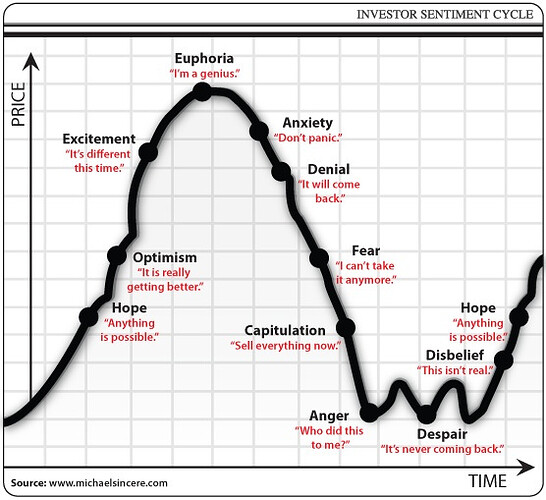This is one area deserves a special place in forum. The last mile stone where even you can bring back the horizon. An investor attains eternity, find a stairway for stardom. Behavioral finance differentiates good from rest, the proverbial separating wheat from chaff; happens to be tag line of valuepickr.
Academically behavioural finance is the study of causes and effects behind irrational financial decisions. Behavioural finance is a subset of behavioural economics. Other areas closely associated with behavioural finance are cognitive studies, subject of psychology. Behavioural finance has seen several advanced versions even when its relatively new such as neural finance and economics. Earlier NLP (Neuro Linguistic Programming) studies were very similar to behavioural finance.
But before let me say something. I am a student of behavioural finance that to unsuccessful student. My writings may turned out be here amateurish and made me a laughing stock. Still I am pushing this subject here because a focussed forum like valuepickr is build on networking of human ideas; must have something about guiding principles behind those networking ideas. Hence the attempt!
It’s a mega subject, not sure where to start. Just an idea of how it started and what key resources are must to get acquainted.
Traders and investors have been known to use the intuition, instinct, gut etc for a long time. Mostly these were black holes to others who wanted to know how these people are using such ideas, at the same time it was difficult for those who were exercising to explain in details. Watch these statements:
- I know I am right, market has to fall (Jesse Lauriston Livermore before famous 400-million-dollar short selling in 1929, almost one fourth of US stock market).
- I felt a back ache, pain shooting through left shoulder. Heart attack
 . No, George Soros before infamous short selling of pound which broke Bank of England.
. No, George Soros before infamous short selling of pound which broke Bank of England. - Go and tell them money will be there tomorrow. Jack Pierpont Morgan told to key people to save 1912 crash. Even he wasn’t sure fully.
- This liquid taste something else, I felt a sensation in spine. It has to be something else. Aga Chandler bought coca cola patent by paying his lifetime savings to a frustrated John Pemberton who made a pharmacy invention.
It was Daniel Kahneman and Amos Tversky who pursued the subject entire life on heuristics, psychology behind judgment. The larger study turned into a concept which became attention of practitioners, the concept was called Behavioural Economics for which Dan got a Noble prize. At same time NLP or Neuor-Lingustic Programming was attempted by Richard Bandler as a communication and personal development tool connecting neural process to behavioural patterns. This is in addition to scientific study on structure of brain such as chaos, right side of brain which was ongoing for several decades mostly by medical practitioners. For some cognitive science is as old as religious scriptures, even all dynastic empires. Further fractal theory practiced by a lot of academician points out a method to break data and wire right side of brain to core brain.
In summary study of behavioural finance connects several aspects, it would be better call network of mental model.
I am leaving you with few resources, going for a workshop next 2/3 weeks. Possibly will think about an approach how to present this magnanimous study. Please feel free to guide:
Frogs into Princes by Richard Bandler
NLP: The new technology achievement by Charles Faulkner
Thinking fast and slow: Daniel Kahneman
Trading with Chaos: Bill Williams
A rare book showing legendary Bill Williams showing fractal theory and right side of brain thinking.
Behavioural Investing: James Montier
Advances in behavioural economics: Colin Camerer
Trading from your gut- Curtis Faith
Another investment specific book, practiced by famous turtles.
Trading Psychology by Brett Steenbarger
Trading in the Zone by Mark Douglas
In fact most of trading books are stuffed with heavy behavioural finance.
A food for thought? 

 . No, George Soros before infamous short selling of pound which broke Bank of England.
. No, George Soros before infamous short selling of pound which broke Bank of England.